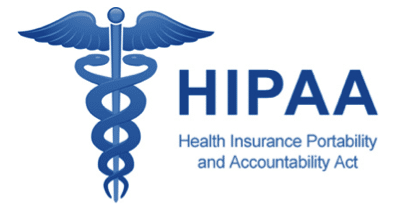
With the rise of electronic health records and the need to protect patient information, the HIPAA Security and Privacy Rules helped define standards for the healthcare industry. However, the world of medical billing is complicated and the health insurance industry requested a set of standards to help improve the efficiency during the transition to electronic records and payments. So the HHS adopted a set of standard transactions for the transfer of electronic health care data.
SEE RELATED: How Large is the HIPAA Industry?
What is a HIPAA Transaction?
A HIPAA transaction is an exchange of electronic information between two Covered Entities to carry out financial or administrative activities related to healthcare. A good example would be when a healthcare provider sends a claim to a health plan to request payment for services. These HIPAA transactions include:- Claims and encounter information
- Payment and remittance advice
- Claims status
- Eligibility status
- Enrollment and disenrollment
- Referrals and authorizations
- Coordination of benefits
- Premium payment
Any Covered Entities who conduct any of these transactions are required to use an adopted standard from ASC X12N or NCPDP for certain pharmacy transactions. But these are only standards when it's Covered Entities making the exchange, the rules change when only one of the parties is a Covered Entity. For example, if a patient is making a co-pay to the hospital for treatment received, that is not a standard transaction so does not need to follow any specific format for record keeping. However, that does not exempt the Covered Entity from making sure the transaction itself is secure under the other areas of HIPAA regulations.
Simplifying the Business of Healthcare
In 2010, the Affordable Care Act (ACA) included additional provisions that covered the use of transactions. The purpose was to simplify the business side of healthcare and are referred to as Administrative Simplification. The provisions included requirements for the adoption of:- Operating rules for existing transactions
- A standard unique identifier for health plans
- Standards for electronic funds transfer and electronic healthcare claims attachment.
The ACA also created a new requirement for health plans to certify their compliance. In addition, it established a new set of penalties that could be imposed on health plans for failure to comply that is enforced by the Centers for Medicare & Medicaid Services. It is best practice for any physician practice to ask health plans to comply to the HIPAA standard transactions in order to reduce the complexity of billing and claims. If a practice requests it, the health plan must comply or be subject to fines.
So what does it all mean to me?
Luckily for patients and consumers, there's little to worry about. But for any practice dealing with insurers and health plans, it's important to stay up to date on HIPAA transaction standards and make sure you demand your vendors do so as well.
SEE ALSO: The Complete Guide to HIPAA Compliance
Subscribe to Paubox Weekly
Every Friday we bring you the most important news from Paubox. Our aim is to make you smarter, faster.

 Hoala Greevy
Hoala Greevy



